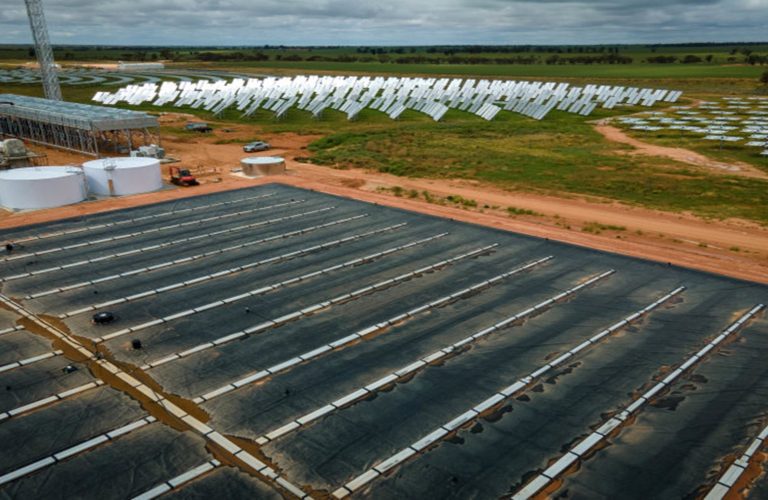Victoria, Australia | Supply Only
project summary
With the need to transition away from fossil fuel-based energy generation, large-scale and long-duration energy storage has become critical. RayGen, an Australian technology company, has created an innovative cost-effective solution to combine renewable solar power generation, energy storage, and regeneration to provide reliable and flexible dispatchable power on demand. The system utilizes mirror arrays to focus solar energy on tower-mounted high-efficiency photovoltaic (PV) cells. The electrical energy generated is dispatched to the grid while the PV cells are liquid-cooled to maintain optimum generating efficiency. The hot water generated in the cooling of the PV cells is then stored in an earthen pit thermal energy storage (PTES). Excess electrical energy not supplied into the electrical grid is used to chill water stored in a second PTES. At night or during peak electrical demand, the energy stored in the hot and cold PTES’s is used to power an organic Rankin cycle engine to generate electrical energy.
The PTES’ are constructed with high-performance geomembrane liners to eliminate seepage losses and with insulated high-performance geomembrane floating covers to eliminate energy loss, evaporation, and biological and inorganic contamination. The long-term performance of the geosynthetic materials used in the PTES is critical to the success of the system. Operation parameters require the geomembranes to be capable of withstanding continuous temperatures between 85 and 95 degrees Celsius, which are typically beyond the operating range of commonly used polyolefin materials. The top surface of the floating covers also needs to have exceptional UV weathering resistance.
After a detailed review, Layfield offered a high-temperature, high-performance bi-modal HDPE geomembrane as a suitable material. Specifically developed for high-temperature liquid applications, it retains its mechanical and chemical resistance properties to very high temperatures. During the development of the product, Layfield undertook extensive, long-term testing and immersion studies in a variety of liquids over four years before releasing the product on the market.
RayGen has now opened a facility incorporating 4 MW solar generation and 2.8 MW/50 MWh (17 hours) storage proving the technology demonstrating immediate results.
